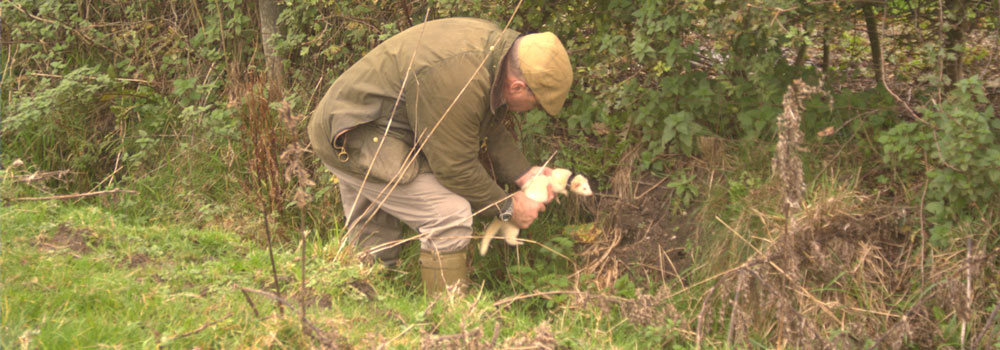Legal Considerations
All occupiers of land have statutory obligations regarding wild rabbits that are harbouring on their land.
An Order has been made under Section One of the Pests Act 1954 by which England and Wales (except for the City of London, the Isles of Scilly and Skokholm Island) have been declared a Rabbit Clearance Area. In this area, every occupier of land is responsible for controlling wild rabbits on his/her land or for taking steps to prevent them causing damage. This is a continuing obligation.
The Agriculture Act 1947 and the Pests Act 1954, collectively established the present regulatory regime for rabbits. These two Acts were introduced at a time when rabbit numbers were higher and the damage they caused was significantly greater than at the present time. Following a review, Natural England will now only be visiting sites and issuing Agriculture Act Notices in exceptional circumstances, although they will continue to have regard to the requirements of section 17 of the Agriculture Act 1986.
According to Natural England, a range of factors lie behind this change including:
- The present enforcement regime within the Agriculture Act 1947 and the Pests Act 1954 was established at a time when rabbit numbers and the damage they caused was much greater than now.
- Natural England believes that the long term resolution of disputes over rabbits between neighbours is best achieved by co-operation. Without co-operation, problems are almost certain to recur. If co-operation fails, occupiers do have options such as rabbit fencing to prevent damage.
- Fines that can be levied under the two Acts are relatively modest compared to the cost of fencing or controlling rabbits and may not provide an effective deterrent. For example, it could cost potentially thousands of pounds to erect a fence but there is a maximum fine of £500 if successfully prosecuted and a further fine not exceeding £5 per day, until a Notice is complied with.
- It is understandable that those suffering damage through the inactivity of neighbours feel that they should not pay to resolve the problem. However, given that compulsion is often not the most effective way of resolving problems with rabbits, Natural England feels it would only be appropriate to spend public money issuing and enforcing Notices in exceptional circumstances.
- Exceptional circumstances would, for example, be a situation that had national rather than local significance; it would not normally be damage at a holding or even parish scale.
Natural England will keep this policy under review. It is also their aim to advocate with Government that the option of civil action should be available to settle disputes when co-operation fails, as they feel that this is more appropriate in disputes between neighbours rather than criminal sanctions or government intervention.
Natural England will provide advice both on the telephone and with leaflets to help those who are having difficulty controlling rabbits. They will also engage with any large corporate bodies where there is evidence that there is a widespread problem connected with their land holding to try to resolve the problem.

